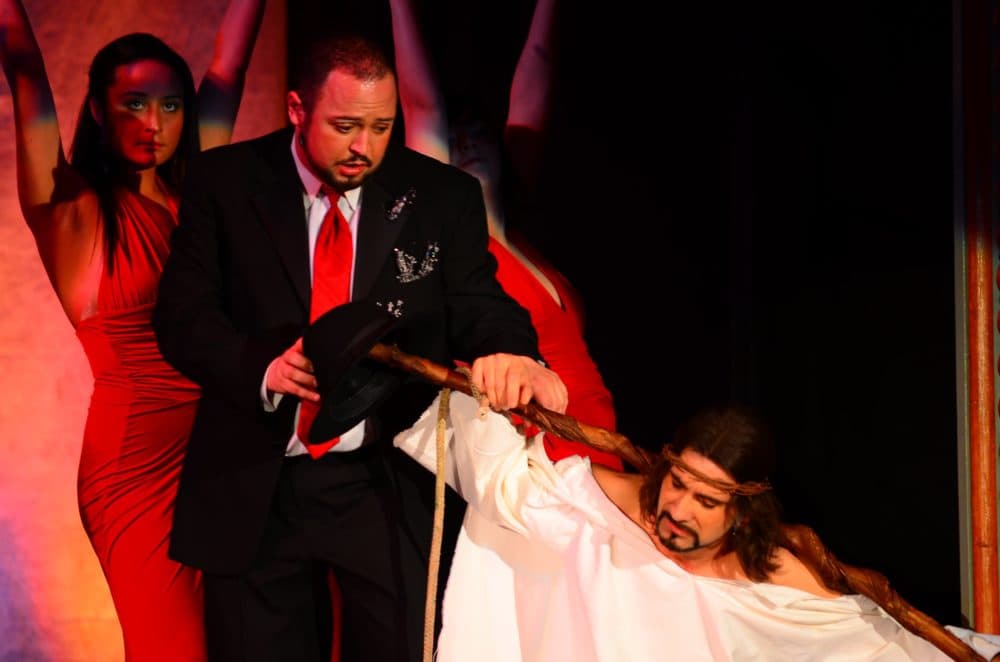
This is the second article in a series about community theaters located throughout RI.
According to the American Theater Association, it has always been difficult to get an accurate count of community theaters in operation in the United States and its territories – currently guesstimated to be over 6,000 venues. This is because of their “unnerving propensity for multiplying like rabbits and dying off like fruit-flies.” The reasons for their assurgency range from the opportunity for people of all backgrounds and experience to participate in the art of theater, the fostering of a sense of community, enriching and showcasing the local culture, to attracting visitors to stimulate revenue for local businesses. But their demise typically comes down to just one factor. According to Quincy Walters, a former producer of podcasts for WBUR, Boston’s NPR station and a leader in public media, “There is a lot of trust and very little oversight.”
In 2020, Walters reported on a con artist named Richard Bento, who ripped off amateur theaters in three states over two decades. The perpetrator would become a trusted member of the ensemble and a leader within a theater’s administration, who then accessed and mishandled finances. Bento would mount unauthorized productions where royalty payments were pocketed rather than paid, initiate participation fees for actors and keep the cash, and then vanish. The cycle would then continue again somewhere else.
In a 2022 follow-up podcast titled “The Jesse James of New England Community Theater,” we learn that the “somewhere else” included a beloved community theater in Bristol, Rhode Island. One of three picturesque seaside communities situated in the East Bay of the Ocean State, Bristol has no shortage of historical sites, boasts a vibrant downtown district, and is home to America’s Oldest 4th of July Celebration. It is also the home of the Bristol Theatre Company, which was founded in 1983 and has operated out of a 150-seat theater in the old Reynolds School since 2012. The company performed four shows a season, mostly musicals, complementing the 2nd Story Theatre in neighboring Warren, which tended to do straight plays until it closed in 2018. Early in the company’s first season at this venue, Bento was hired as artistic director. “I was new to the job and happy to have someone with the talents he brought to the table,” recalls the theater’s Board Chair Marie Knapman in Walters’ podcast. Bento had been an actor – having played, ironically, the role of Judas in the 2011 production of Jesus Christ Superstar at the Footlights Repertory Company in Swansea, MA – as well as an administrator. It did not take long for Knapman to start hearing from vendors that invoices had been doctored. And she soon obtained surveillance footage from the bank’s drive through that showed Bento illegally cashing checks. Knapman then discovered that nearly $15,000 had been siphoned from the theater’s treasury.
Bento was arrested in March 2014 and charged with embezzlement, fraud, and several counts of obtaining money under false pretenses. He was found guilty and ordered to pay restitution, which he eventually did. Things haven’t been any easier for the Bristol Theatre Company. On the heels of their sold out 2020 production of Frozen, Jr., the Reynolds auditorium was taken over by the Town of Bristol and the company was unceremoniously evicted. And so, the local theater became homeless and, according to Ethan Hartley at EastBayRI. com, has been “languishing in limbo” ever since. Bristol Theatre Company has still managed to produce the occasional show in nearby Portsmouth, staged A Christmas Carol in Warren, and recently attempted a partnership with the Arts Alive! program in Barrington to share 2nd Story Theatre’s former space. Also, an offer to share resources at the Academy Players stage in PVD has been extended, because that is what community theaters do.
“There’s a very special bond among community playhouses across this small state,” notes Rita A. Maron, artistic director of Academy Players, “Even though the world of theater is crazy competitive. We all have the same mission, the same beliefs in the power of creativity, and we share many of the same people behind and on the stage. We are our own best support system.” But all this takes the Bristol Theatre Company out of Bristol. “Throughout all this constant starting over, which is exhausting,” says Knapman, “We’ve always been able to trust the local audience. They’ve always found us. And they will again.” Because that is what communities do. •
Bob Abelman is an award-winning theater critic who also writes for The Boston Globe. Connect with him on Facebook.